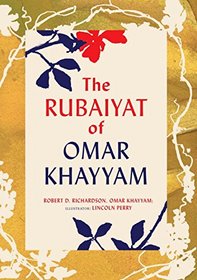I cannot read or speak Persian/Farsi, so this refers only to the English interpretation, without reference to the original.
I found this to be a beautiful, touching, and contemplative poem, which can be read literally, as a celebration of wine and the beauty of the world that surrounds us, or symbolically, as a reminder to welcome in to one's soul the 'wine of divine light'. Khayyam implores the reader to remember that life is short and a beautiful gift, and that one needs no church or priest or holy book to access heaven, as it is available all around us, if only we can sense its presence. This is the sort of mysticism found in Walt Whitman, and if you like one, you'll probably like the other.
The translation seems very fluid and expresses the dual meaning of the text well.
I found this to be a beautiful, touching, and contemplative poem, which can be read literally, as a celebration of wine and the beauty of the world that surrounds us, or symbolically, as a reminder to welcome in to one's soul the 'wine of divine light'. Khayyam implores the reader to remember that life is short and a beautiful gift, and that one needs no church or priest or holy book to access heaven, as it is available all around us, if only we can sense its presence. This is the sort of mysticism found in Walt Whitman, and if you like one, you'll probably like the other.
The translation seems very fluid and expresses the dual meaning of the text well.




![header=[] body=[Get a free book credit right now by joining the club and listing 5 books you have and are willing to share with other members!] Help icon](/images/question.gif?v=29befa08)
